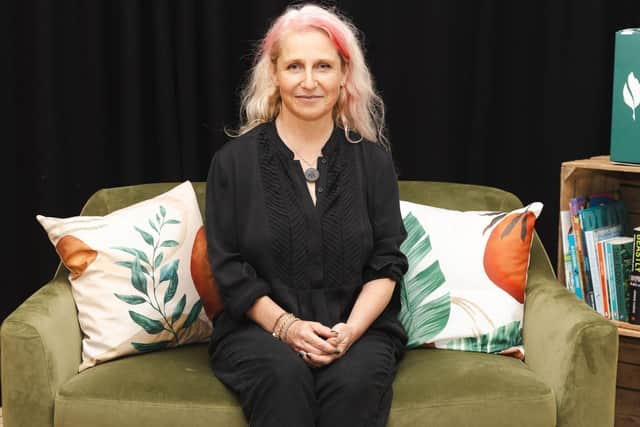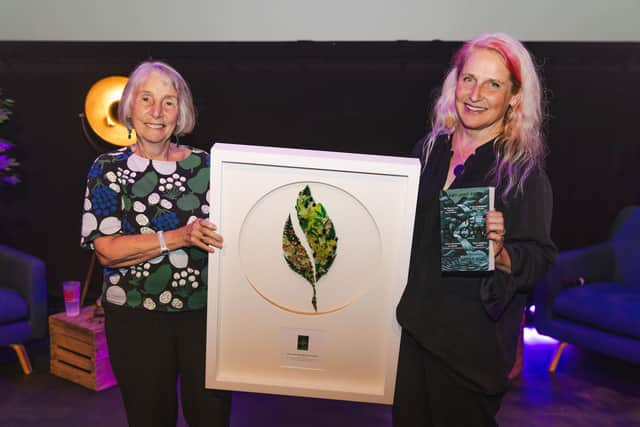Yorkshire biologist, writer and campaigner on the power of rivers and the need to protect them
But it wasn’t until a visit to a rapid where a close friend sadly died several years ago in a kayaking accident that Dr Beer realised the strength, solace and wonder she found in Britain’s waterways. "I had this very profound experience of being really aware of the mystery and wonder of water and what a wonderful place the bank of a river is for reflection,” she says.
"I loved the places and nature you’d get to see by kayaking but my relationship with the water itself had been kind of a technical challenge...Although I was aware of the natural environment, there wasn’t much time to pay attention to it, to sit, watch and absorb. I realised that was an element I had been missing.”
Advertisement
Hide AdAdvertisement
Hide AdDr Beer, a biologist turned naturalist and writer, found herself putting pen to paper about her personal connection with the water. She’d already had a vague idea she wanted to write a book about water, but from a scientific perspective, like much of her previous work. That morphed, however, into something that was much more creative and experiential. “I’ve put my heart on a plate and offered it up for public consumption so it’s been a big shift for me as a writer,” she reflects.


The Flow: Rivers, Water and Wildness explores themes of adventure and access to wild places, as well as grief and healing, cyclicity and transformation, and our personal and ecological place in nature. It is described as a passionate advocate for protecting the living, flowing habitats around us. The book is drawn from her study of – and visits to – water in all its forms, a journey that began following her profound experience back at the rapid.
Just last month, Dr Beer, who lives between York and Malton, received “slightly disbelieving” praise for her work, when she won the 2023 James Cropper Wainwright Prize for Nature writing. The award is given annually to the books which most successfully inspire readers to explore the outdoors and to nurture a respect for the natural world.
“I wanted [the book to encourage] people to go and look at their local river and take a bit of time and pay attention to it,” she reflects. “That’s very good for us mentally, physically, emotionally and spiritually. But also in terms of caring for the environment, once we go and bond with a place, we’re much more likely to act as a guardian or protector for it.”
Advertisement
Hide AdAdvertisement
Hide AdHer own love for the environment stemmed from childhood when, living on the edge of Salisbury Plain in Wiltshire, she and her sister would explore the nature around them. She got involved then in Duke of Edinburgh expeditions, going on to lead them, and discovered a passion for mountains and wild spaces. Ever since, her interest has been academic as well as personal. After studying biology at the Royal Holloway, University of London, she has worked for more than 20 years as a science writer and editor, contributing to more than 40 books on natural history.


Dr Beer campaigns for the equality of access to nature and collaboration between farming and conservation sectors. She sits on the steering group of the environmental arts charity New Networks for Nature and the land rights campaign RightToRoam.org.uk and is honorary President of the national park society Friends of the Dales.
She claims a shift is needed from “a default of exclusion” to allowing people greater access to waterways and the wider countryside. “It’s not kayakers or wild swimmers or people sitting by a river in quiet contemplation that are the problem for our rivers,” she says, pointing instead to sewage dumping, artificial fertilisers and over-extraction of water. “These are actually the people that become guardians and it’s the same across the wider countryside.”
She has realised, she says, that getting people to engage with environmental issues means writing in a way that goes beyond just presenting the science. “That’s still key, you need to portray things in a way that is accurate, but I think it’s more powerful if you can share information in a way that also appeals to people’s hearts as well as their minds.
Advertisement
Hide AdAdvertisement
Hide Ad"It really matters now that we connect and people understand why the science matters, particularly in relation to climate and biodiversity crises. It’s [about] making people feel like they want to act, they need to act and they can act.”
